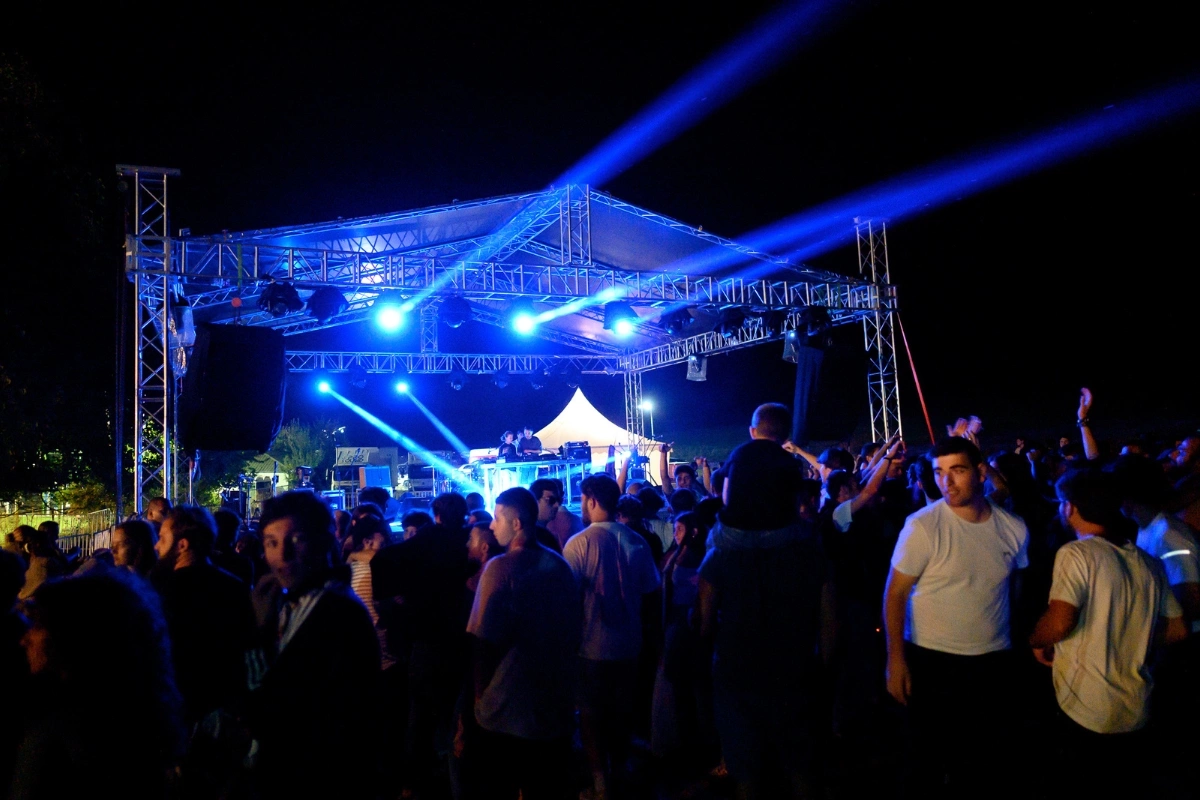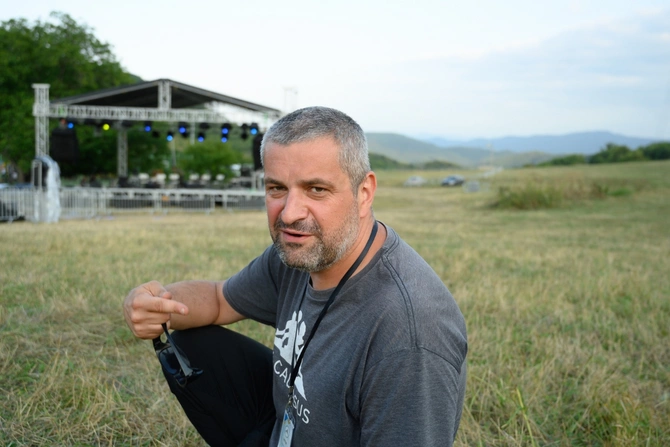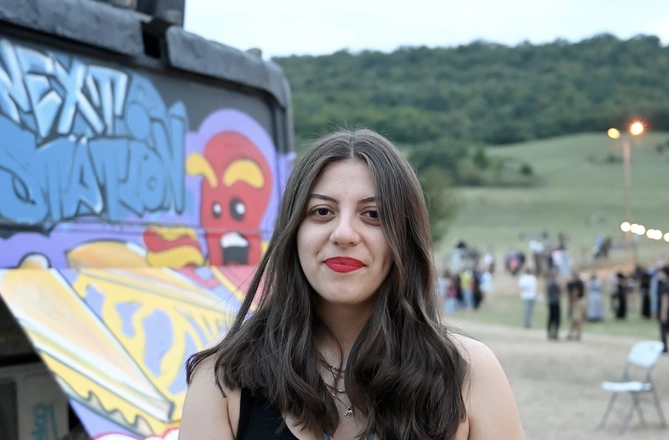
The One Caucasus Festival in Georgia unites diverse communities, fostering peace and cultural exchange among Armenians, Azerbaijanis, and Georgians.
Image: Onnik James Krikorian
This month, against the backdrop of the Caucasus Mountains, a unique four-day festival in Georgia celebrated its tenth anniversary. Held annually in August, the multi-disciplinary One Caucasus festival aims to rediscover a spirit of unity and cooperation that once flourished among the diverse nations of the region. Located in the village of Tserakvi, a small Georgian village in the majority ethnic Azerbaijani region of Kvemo Kartli, which is also home to ethnic Armenian and Georgian minorities, this blend of cultures provides a rich context in which to foster mutual understanding and collaboration.
In the weeks leading up to the festival, volunteers transform the festival site on the grounds of the local school and organize cultural and educational workshops for children in nearby villages. Polish Director Witek Hebanowski, who has overseen the event since its inception, describes One Caucasus as a vibrant space where young people can connect, collaborate, and celebrate their shared heritage. Accompanying them on that journey are international volunteers from all seven continents.
By 2022, more than 420 volunteers from 40 countries have volunteered at One Caucasus, while 570 musicians from Armenia, Azerbaijan, and Georgia, as well as countries as diverse as Algeria and Barbados to Scotland and the US, have performed. In total, the organizers say, over 21,000 people have attended the event in the past decade. In addition to conducting workshops for over 1,600 children in the ethnic Armenian, Azerbaijani, Georgian, and mixed communities in the Marneuli municipality of the Kvemo Kartli region, there have also been joint architectural and participatory budget projects.
In 2021, amid the global COVID-19 pandemic lockdown when the open-air concert spread over several days could not be held, One Caucasus took a mobile truck featuring Georgian musicians accompanied by an ambulance to administer vaccinations. Medical brochures in Armenian, Azerbaijani, and Georgian were also distributed.
Though still relatively small in size, One Caucasus has attracted well-known acts such as Armenia’s The Bambir, Azerbaijan’s Dihaj, and Georgia’s Tamada. The festival’s location close to Georgia's borders with Armenia and Azerbaijan underscores its role as a cultural bridge, bringing together communities that have at times been divided. Hebanowski says even then the location surprised him.

Image: Onnik James Krikorian
“We were looking for a space along the border with Armenia and Azerbaijan, and to be honest, we were completely shocked when we found Marneuli because it's not even about Armenian-Azerbaijani villages where those two populations live together,” Hebanowski says, referring to how the local ethnic Armenian and Azerbaijani maintain close links.
“To be frank, I was very worried how One Caucasus started with this strong message of practical peace and not some training, not some mediation practices, but in reality, [would be] after the [2020] Karabakh war, but since last year we have Armenian musicians who are really willing to create some projects with Azerbaijani musicians. At the same time in Baku we have guys who really want to come back here because this is the spirit that they want, that they need, and that is why we have to provide the space.”
This year, among seven or more volunteers from Armenia were even ethnic Armenians from Karabakh, despite the surrounding and overwhelming ethnic Azerbaijani population. This is in stark contrast to those that allege interethnic communication is impossible.
“I don’t believe there are good nations or bad nations,” says Sargis Burnazyan, vocalist with the Armenian alternative rock band Altsight. “People are people. I don’t know whether I will be cancelled in Armenia or other places, but I do respect people that are able to respect each other. So I don’t really care about nationality. People here are really friendly.”

Image: Onnik James Krikorian
“My home is the whole Caucasus, so I love it,” says Sona Mekhtizadeh, a social work graduate and volunteer from Azerbaijan who has participated in the event twice. “I am happy that this festival takes place here because it unites people. These three nations can live in peace without any politics. I hope that we will be stronger together.”
Melanie Hovhannisyan, a volunteer from Armenia, agrees and says part of the reason for her participating was to foster the same. “I have been participating in several seminars on peacebuilding, but all those were held in Armenia. I didn’t have the possibility to participate in any event with people from other countries, particularly from Azerbaijan and Georgia,” she says. “Mostly it was us, Armenians, so it was kind of a closed community, and I decided to get to know other people as well. This festival was one of the most important decisions for me.”
On this, the tenth anniversary of the event, One Caucasus stands as a testament to the power of cultural exchange and the enduring hope for harmony in a region usually characterized by its complexities. In Tserakvi, where the echoes of history mingle with the rhythms of today, the festival remains a vibrant celebration of the region's shared spirit and diverse heritage. “The Caucasus is known for mutual respect and diversity, says Hebanowski. “We wanted to do something that could unite the whole South Caucasus.”
Share on social media